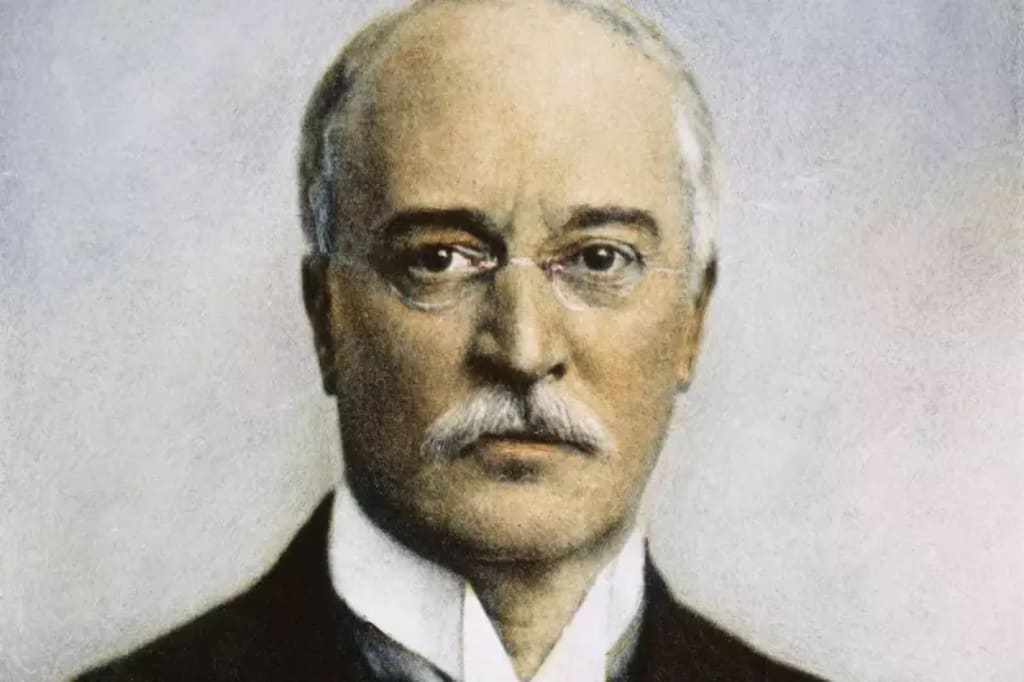The Mysterious Disappearance of Rudolf Diesel, Inventor of the Engine That Changed the World
The Baffling Disappearance of A Revolutionary Inventor

It was a calm, clear night in late September 1913 when the steamship SS Dresden departed the Belgian port city of Antwerp on a short overnight journey across the English Channel to Harwich, England. On board was one of the most famous inventors alive at the time - the German engineer Rudolf Diesel. But when the Dresden arrived in Harwich the next morning, Diesel was nowhere to be found. His mysterious disappearance from the decks of the ship that night has puzzled historians for over a century.
Rudolf Diesel was born in 1858 in Paris to German parents. He was a gifted student and excelled in subjects like math, physics, and foreign languages. After graduating from technical university in Munich, Diesel went to work for the German inventor Carl von Linde. Together they patented numerous inventions and Linde's company flourished. But Diesel yearned to create something monumental of his own. He turned his focus to designing a more efficient internal combustion engine.
At the time, steam engines were extremely inefficient, wasting over 90% of their fuel energy. Diesel realized there was enormous room for improvement. Through tireless experimentation, he invented an engine that relied on air compression rather than steam to ignite the fuel. This engine, which we now call the diesel engine, operated at over 25% efficiency - more than double the efficiency of other engines then in existence.
But Diesel's journey was not easy. Early prototypes were plagued by reliability problems. During one experiment, an engine exploded in Diesel's face, hospitalizing him for months. Many customers who bought the first diesel engines demanded their money back. The stress took a toll on Diesel's health and he suffered a nervous breakdown in 1898, forcing him to check into a psychiatric hospital.
However, Diesel persevered and by the early 1900s, improved diesel engines were powering factories, trains, ships, and generators around the world. The royalties made Diesel a wealthy man. He built a lavish villa for his family near Munich and was finally able to retire and enjoy the fruits of his labour.
Which is why Diesel's disappearance from the Dresden in September 1913 shocked his friends and colleagues. He had dinner in the ship's restaurant the evening of the 29th, retired to his cabin, and was never seen again. A search of his cabin revealed a diary with a small cross marked next to that day's date, suggesting he may have been planning suicide. But other evidence contradicts that theory.
Diesel had booked a 6:15am wake-up call he never needed. His hat and coat were found neatly folded on the deck rails, an odd behaviour for someone intending to jump overboard. The timing was also suspicious - he vanished right before an important business meeting in London. As rumours swirled about his possible financial problems, many refused to believe the suicide theory, including Diesel's own wife and son.
Ten days later, a bloated corpse was found floating in the North Sea. Items in the dead man's pockets were identified as belonging to Diesel. But the body was in poor condition and quickly discarded without an autopsy. This robbed investigators of any solid proof that the body was truly Diesel's. The suspicious timing and contradictory evidence has led some to believe Diesel's death may actually have been murder, not suicide.
But who would want him dead? One intriguing theory points the finger at the German government. Diesel was on his way to London to negotiate licensing his engine design to the British Royal Navy for use in their submarines. With war brewing, this technology in the hands of Germany's soon-to-be enemy was unacceptable. Perhaps German agents eliminated Diesel before the deal could go through.
However, others speculate that big oil companies may have conspired to murder Diesel. His engines could run on a variety of fuels, including cheaper biofuels like peanut oil. This threatened the fledgling petroleum industry. Killing Diesel removed an obstacle to their plans for domination. Oil companies allegedly murdered activists many decades later, so perhaps they started with Diesel in 1913.
Rudolf Diesel paved the way for all modern diesel-powered vehicles and machines. Over a century later, his engine design continues to power the global economy. But by vanishing from the steamship that September night in 1913, Diesel also gave us an enduring mystery. Suicide or murder? Accident or conspiracy? Without definitive proof, we may never know what really happened to the man who revolutionized the engine. Diesel's disappearance into the cold darkness remains one of history's most puzzling unsolved mysteries.
About the Creator
KWAO LEARNER WINFRED
History is my passion. Ever since I was a child, I've been fascinated by the stories of the past. I eagerly soaked up tales of ancient civilizations, heroic adventures.






Comments
There are no comments for this story
Be the first to respond and start the conversation.